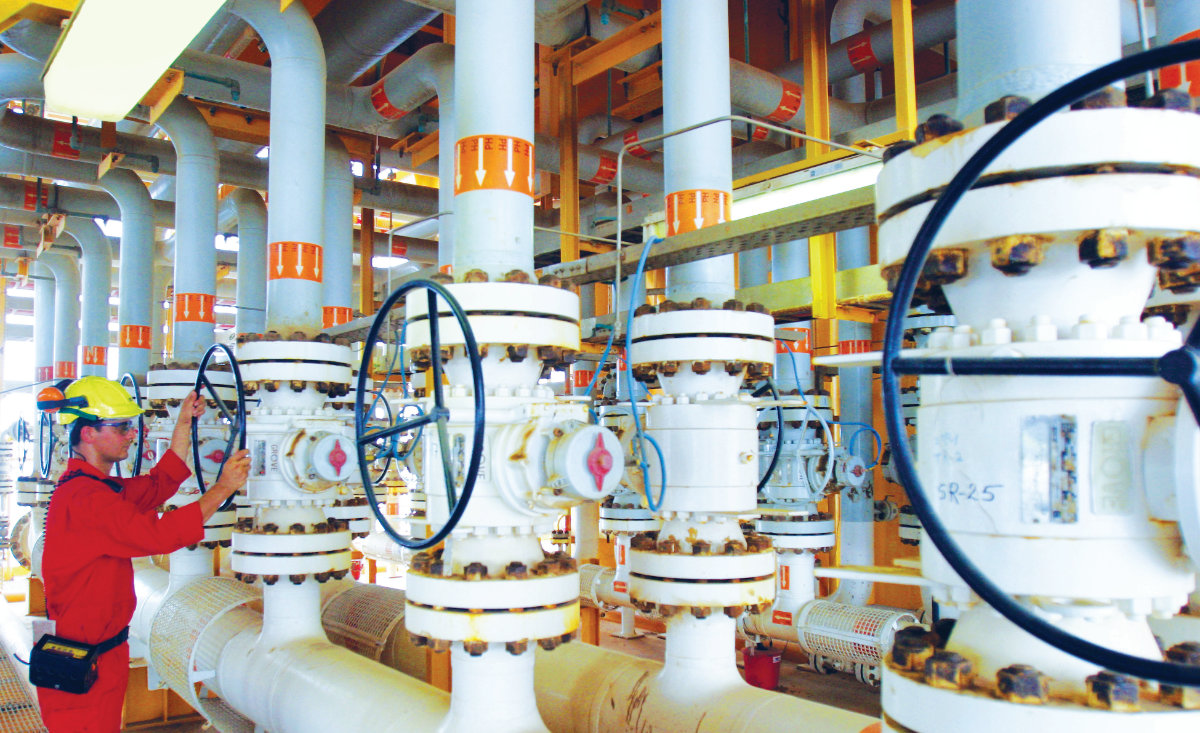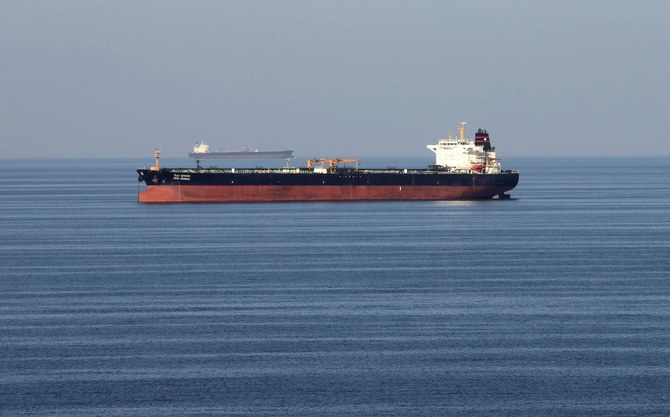LONDON: Iran has opened its first oil export terminal that does not require tankers to pass through the Strait of Hormuz, as it looks to expand its oil exports in contravention of US sanctions.
Iranian Oil Minister Bijan Namdar Zanganeh proclaimed at the launch of the project that it would aid exports, adding that it was “a manifestation of the breakdown of sanctions.”
The official IRNA news agency had said on Wednesday that the new pipeline and terminal would help Tehran “win back the Iranian oil market from rival countries.”
Iran’s other major oil terminal is located at the Gulf port of Kharg, accessed through the Strait of Hormuz, which is less than 40 km wide at its narrowest point, and where US and Iranian naval vessels have faced off in the past.
Iran has been under punishing US sanctions since former President Donald Trump unilaterally withdrew from the landmark 2015 Iran nuclear deal in May 2018, heavily impacting Iranian energy exports.
“We had a terminal and if there was a problem, our oil exports would be cut off,” Iranian President Hassan Rouhani said, adding that “today is a great, historic day for the Iranian nation.”
“The oil industry is very important for us, and it is also important for the enemy,” Rouhani said in televised comments.

Iran has also built a 1,000-km pipeline to carry its oil from Goreh, in the southwestern Bushehr province, to the new terminal in the country’s southeast. (Reuters
/File)
Iran has also built a 1,000 km pipeline to carry its oil from Goreh, in the southwestern Bushehr province, to the new terminal in the country’s southeast.
Rouhani estimated the value of the new project at $2 billion. According to Iranian media, it has been underway for about two years.
The US has accused Iran of trying to circumvent the sanctions by exporting oil to countries including China, Venezuela and Syria.
Washington has repeatedly announced the seizure of tankers allegedly carrying Iranian oil.
According to Iranian officials, the Islamic Republic aims to eventually pump “one million barrels per day” through the pipeline.
At the moment, the project allows Iran to export 350,000 barrels per day (bpd), they said.
BACKGROUND
Iran has been under punishing US sanctions since former President Donald Trump unilaterally withdrew from the landmark 2015 Iran nuclear deal in May 2018, heavily impacting Iranian energy exports.
Iran produced 2.47 million bpd in June, according to latest available figures from OPEC.
“The new terminal has been a strategic imperative for Iran, especially given the heightening of tensions in the Persian Gulf with Saudi Arabia and Israel,” said Herman Wang, an oil analyst at S&P Global Platts. “Bypassing the Strait of Hormuz would provide Iran an export outlet in the event the passage is closed for any reason.
“Until sanctions are lifted, the pipeline and terminal will likely remain well below capacity,” added Wang.
Given Washington’s sanctions, Tehran is discreet about its shipments of crude to the few customers who still dare to buy it.
A Chinese logistics firm has emerged as a central player in the supply of sanctioned oil from Iran and Venezuela, even after it was blacklisted by Washington two years ago for handling Iranian crude, seven sources with knowledge of the deals told Reuters.
The more prominent role of China Concord Petroleum Co. — also known as CCPC — and its expansion into trading with Venezuela highlight the limitations of Washington’s system of restrictions, analysts said.
In the past year, CCPC has acquired at least 14 tankers to transport oil from Iran or Venezuela to China, two of the sources said.
In 2019, Washington added CCPC to a list of entities under sanctions for violating restrictions on handling and transacting Iranian oil. The company has not commented publicly on the sanctions and Reuters could not determine what impact the US blacklisting has had on CCPC.
CCPC supplies half a dozen Chinese teapot refineries with Iranian oil, three China-based sources said.
Iranian officials familiar with the matter confirmed that CCPC was a central player in Tehran’s oil trade with China.
China received a daily average of 557,000 barrels of Iranian crude between November and March, or roughly 5 percent of total imports by the world’s biggest importer, according to Refinitiv Oil Research, returning to levels last seen before Trump re-imposed sanctions on Iran in 2018.























